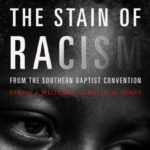“In preaching are we seeking to impress the truth, or to impress ourselves upon others—to draw men’s attention to Jesus Christ or to ourselves?”
That question, which Francis Grimké asked toward the end of a nearly 50-year ministry at 15th Street Presbyterian Church in Washington D.C., is central to his understanding of pastoral work. Whether preaching or praying, doing pastoral care or prophetic confrontation, Grimké’s main burden was to draw attention to Jesus Christ as a Savior for sinners and a Lord for life.
Early Life
Francis Grimké was born on November 4, 1850, to a white plantation owner and his mixed-race slave. Formerly a lawyer, Henry Grimké had moved his household to Caneacres Plantation outside of Charleston after his wife died in 1843. His slave, Nancy Weston, served in his household as a nurse to his children. After a few years at Caneacres, she would be carrying their first child, Archibald, who was born on August 17, 1849. Francis would come 15 months later.
In 1852, as Nancy carried her third child by Henry, yellow fever spread through the Low Country. On September 28, 1852, Henry Grimké died as part of the epidemic. Months before, he had bequeathed Nancy and her children—including John, who would be born at the end of the year—to his son Montague. His intention was that Montague would allow Nancy’s family to remain free under his nominal oversight.
That didn’t happen quite as Henry intended. Initially, Montague Grimké allowed Nancy and her sons their essential freedom as they boarded in their own house in the free black section of Charleston. However, in 1860, Montague married Julia Catherine Bridges, who demanded additional servants. To fill that need, Montague required Nancy send him his half-brothers to be personal servants for the family. The three boys rebelled against this treatment, eventually landing Francis in an apprenticeship to a harsh master who starved and beat him.
All of this was interrupted by the Civil War. In the winter of 1862, Union troops showed up in Charleston. Both Archibald and Francis used the distraction of the Federal siege to make their escape from Montague’s service: Archibald by hiding with a free black family, Francis by going across to the Union side and serving as a personal servant to two different Union lieutenants. At the conclusion of the war, Francis and his brother rejoiced in their personal liberation.
Education
But liberation didn’t mean idleness; it meant education. The Freedman’s Bureau and the American Missionary Association came South to establish schools for the newly emancipated blacks. Francis entered the Morris Street School in Jasper Court with his brother; there they came under the tutelage of Frances Pillsbury, an early leader in black education. She saw the ability of the two Grimké boys and worked to place them with families in the North where they could get a more thorough education.
Eventually, they made their way to Lincoln University outside of Philadelphia. Chartered by abolitionist Presbyterians in 1854, the school’s post-war mission was to train a new generation of African American leaders. Here Francis Grimké came to profess his faith in Christ and commit to Presbyterian doctrines.
The influence of John B. Reeve, pastor of Central Presbyterian Church, Philadelphia, was significant in shaping Grimké’s interest in pastoral ministry. While Francis wrestled with his sense of calling, for a time considering law as a career, Reeve steered him toward ministry. Francis would become a member of Central Church and be recommended to the Philadelphia Presbytery as a candidate for ministry on the same day. He then matriculated at Princeton Theological Seminary, where he studied for three years, completing his studies in 1878.
Grimké’s seminary work exposed him to all the luminaries of the school: W. H. Green and his courses on the Pentateuch and Psalms, Caspar Hodge on Gospels, and especially Charles Hodge’s systematic theology classes. While at the seminary, he embraced a high view of Scripture: “When we speak of the Bible as the Word of God, we mean that the men who wrote it were supernaturally guided in what they wrote; they were used as agents by the Holy Spirit to communicate truth and to record facts for the guidance of humanity. What they wrote, therefore, is to be received, as true, on the authority of the Holy Spirit.”
Ministry
Grimké first made contact with 15th Street Presbyterian Church the summer prior to his senior year when he preached at the church as a summer student supply. It was one of the great historic black Presbyterian churches. Organized in 1841 by John F. Cook to serve African Americans in Northwest Washington D.C., the church would later be served by the famed Presbyterian abolitionist Henry Highland Garnet. By the time Grimké arrived, the church numbered around 150 communicant members who were part of the city’s affluent black community.
Besides a four-year hiatus in Jacksonville, Florida—where his wife, Charlotte, attempted to recover her health—Grimké’s ministry would center on 15th Street from 1878 until his retirement in 1928. His influence, however, would extend far beyond the walls of his church. He ministered to people in his city, founding the American Negro Academy and serving as a trustee of the Colored Settlement House, the public schools of the District of Columbia, and Howard University.
The secret to Grimké’s long-term, faithful, and successful ministry was his understanding of his role and his dogged commitment to it. He prided himself that he met the Presbyterian ideal of an “educated minister.” But far more important was to be counted among ministers “who believe firmly in the Scriptures as the Word of God, and who faithfully preach the truth therein contained, in dependence upon the Holy Spirit to give efficacy to the truth.”
For his faithful determination to preach the Word of God, we count Francis Grimké a dear father in the faith.
Related:
- 20 Quotes from Francis Grimké on Preaching (Matt Smethurst)
Involved in Women’s Ministry? Add This to Your Discipleship Tool Kit.
 We need one another. Yet we don’t always know how to develop deep relationships to help us grow in the Christian life. Younger believers benefit from the guidance and wisdom of more mature saints as their faith deepens. But too often, potential mentors lack clarity and training on how to engage in discipling those they can influence.
We need one another. Yet we don’t always know how to develop deep relationships to help us grow in the Christian life. Younger believers benefit from the guidance and wisdom of more mature saints as their faith deepens. But too often, potential mentors lack clarity and training on how to engage in discipling those they can influence.
Whether you’re longing to find a spiritual mentor or hoping to serve as a guide for someone else, we have a FREE resource to encourage and equip you. In Growing Together: Taking Mentoring Beyond Small Talk and Prayer Requests, Melissa Kruger, TGC’s vice president of discipleship programming, offers encouraging lessons to guide conversations that promote spiritual growth in both the mentee and mentor.

































